
US stooge or neutral Swiss? Diplomat defends key AI deal as tenure ends
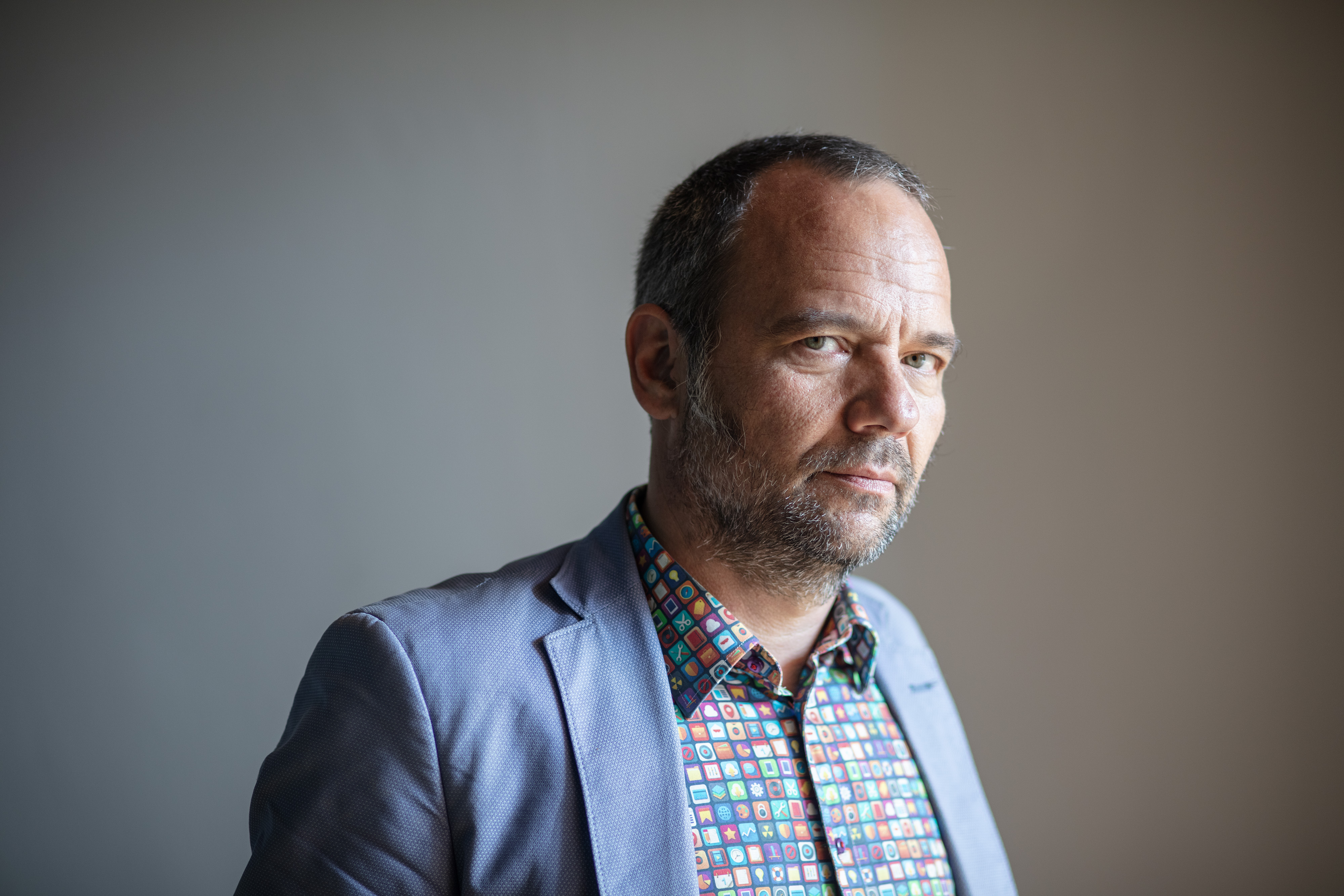
Swiss diplomat Thomas Schneider has brokered a historic treaty on artificial intelligence, securing global consensus on protecting human rights amid evolving technologies. But his achievement sparked controversy, with critics accusing him of compromising on key principles. SWI swissinfo.ch met him as he prepared to leave his post at the embattled Council of Europe.
Should artificial intelligence (AI) be allowed to discriminate based on people’s gender and skin colour, make decisions on access to credit and health services, and use our data for manipulation and surveillance? Until a few months ago, there were no legally-binding global agreements to address human rights violations committed using AI systems. But after years of work, the Council of Europe has created one, through heavy involvement from Switzerland.
Leading international negotiations on such intricate issues can wear down even the most seasoned diplomats. But when Thomas Schneider steps into the meeting room at the council, he appears composed. The Swiss diplomat who headed negotiations on the deal for the last two years has already weathered the toughest part: by March 2024, the 46 states that make up the council, along with 11 observers – including the United States, Canada and Israel – had agreed on the first-ever global convention on AIExternal link.
This landmark treaty, which protects citizens from the dangerous use of AI technologies, is seen as both a decisive step in addressing AI’s threats to human rights, democracy, and the rule of law, and a personal triumph for Schneider.
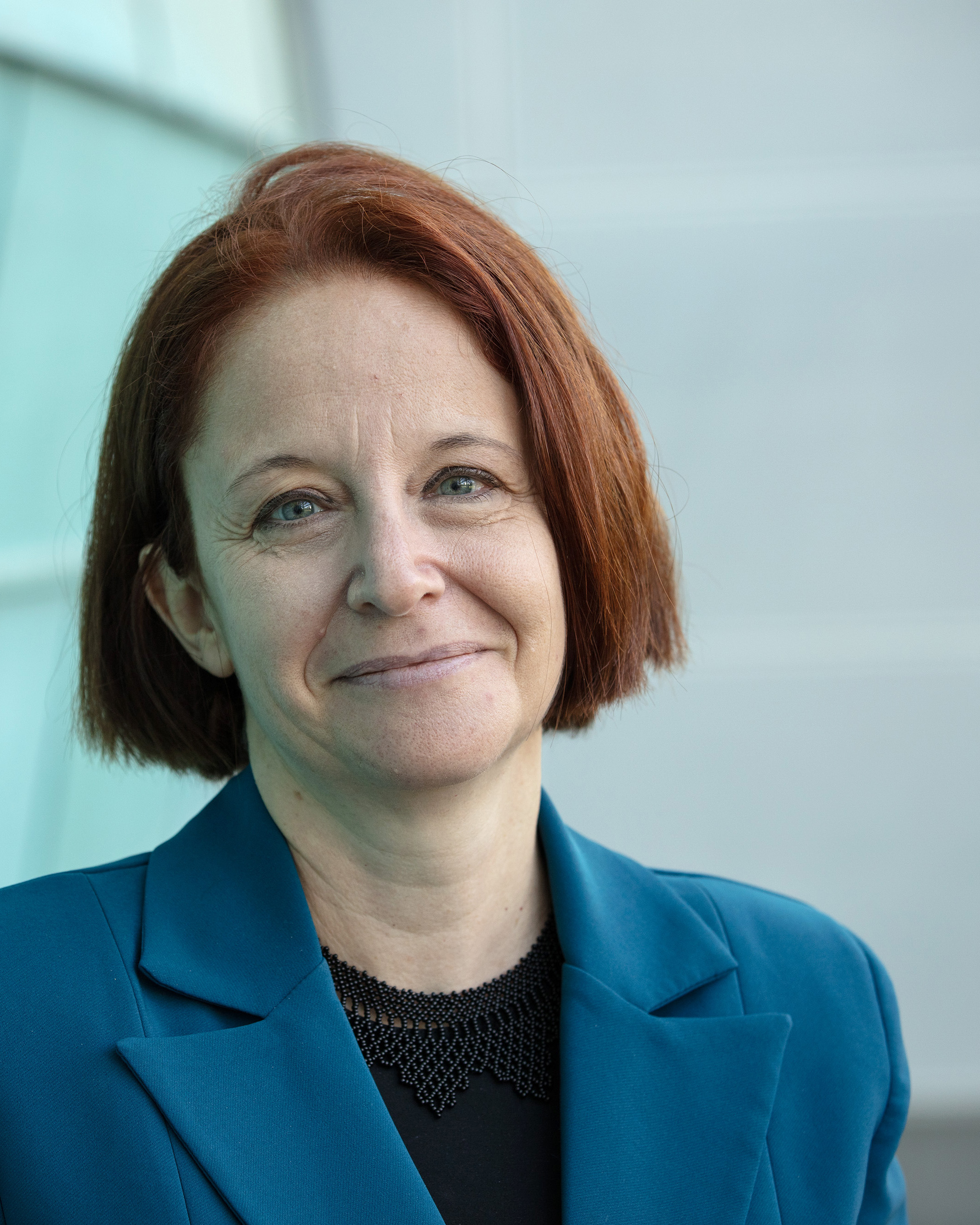
Now, on a mid-September morning in the French city of Strasbourg, just a day before Schneider’s tenure as chair of the Committee on Artificial Intelligence (CAI) is to end, discussions are centred around a non-binding toolExternal link that would allow governments to assess the risks and impacts of AI.
Representatives from NGOs and civil society organisations here today are not pinning their hopes on this tool for a real breakthrough on human rights.
“There are states that insist on changing the language because they do not want to take on even the slightest obligation,” says Francesca Fanucci during a break in the negotiations. The senior legal advisor for the European Centre for Non-Profit Law is worried about a lack of precise obligations because agreements then are watered down and become “mere declarations of intent.”
Some civil society organisations fearExternal link that the AI Convention itself is too ambiguous to be effective and that non-compliance will be impossible to demonstrate, leading to no real sanctions or concrete punishments.
Council of Europe under pressure to reach an AI deal
Several organisations have accusedExternal link the Council of Europe of rushing to agree on a global treaty for the wrong reasons. Critics say it was pushed through less to protect human rights than to restore international credibility and prestige to the council amid a legitimacy crisis. The resulting convention, they argue, lets tech companies off the hook for obligations like preventing bias or human manipulationExternal link of their AI systems. Representatives from civil society state that concessions were made in the negotiations to appease the US, home to the world’s largest technology companies.
“From the beginning, the intention was to include a number of observer states,” says a representative of a Swiss NGO who wishes to remain anonymous. Observer states do not have voting rights, but they have a say in the negotiations. “This increased the pressure for a compromise and made it difficult to create a very prescriptive and stringent convention”, the representative adds.
According to an investigation by the magazine Republik, Schneider has been called a “stooge” for allegedly giving in to Washington’s requests during the AI Convention negotiations. He takes the criticism on board and moves on. To sum up, he says the narrative of the US dictating and the puppet who indulges them “suits some actors in Brussels to put pressure on me and the secretariat during the negotiations”. The 52-year-old knows he can’t please everyone.
Negotiating skills going back to childhood
Wearing colourful buttons on a pastel jacket and a shirt adorned with messaging app-style icons, Schneider does not seem to take himself too seriously. He presents himself as a humble servant of the state, one who has never made decisions with career in mind. The diplomat has worked for almost two decades in governance and regulation at major international organisations, from the United Nations to the Internet Corporation for Assigned Names and Numbers (ICANN), and others.
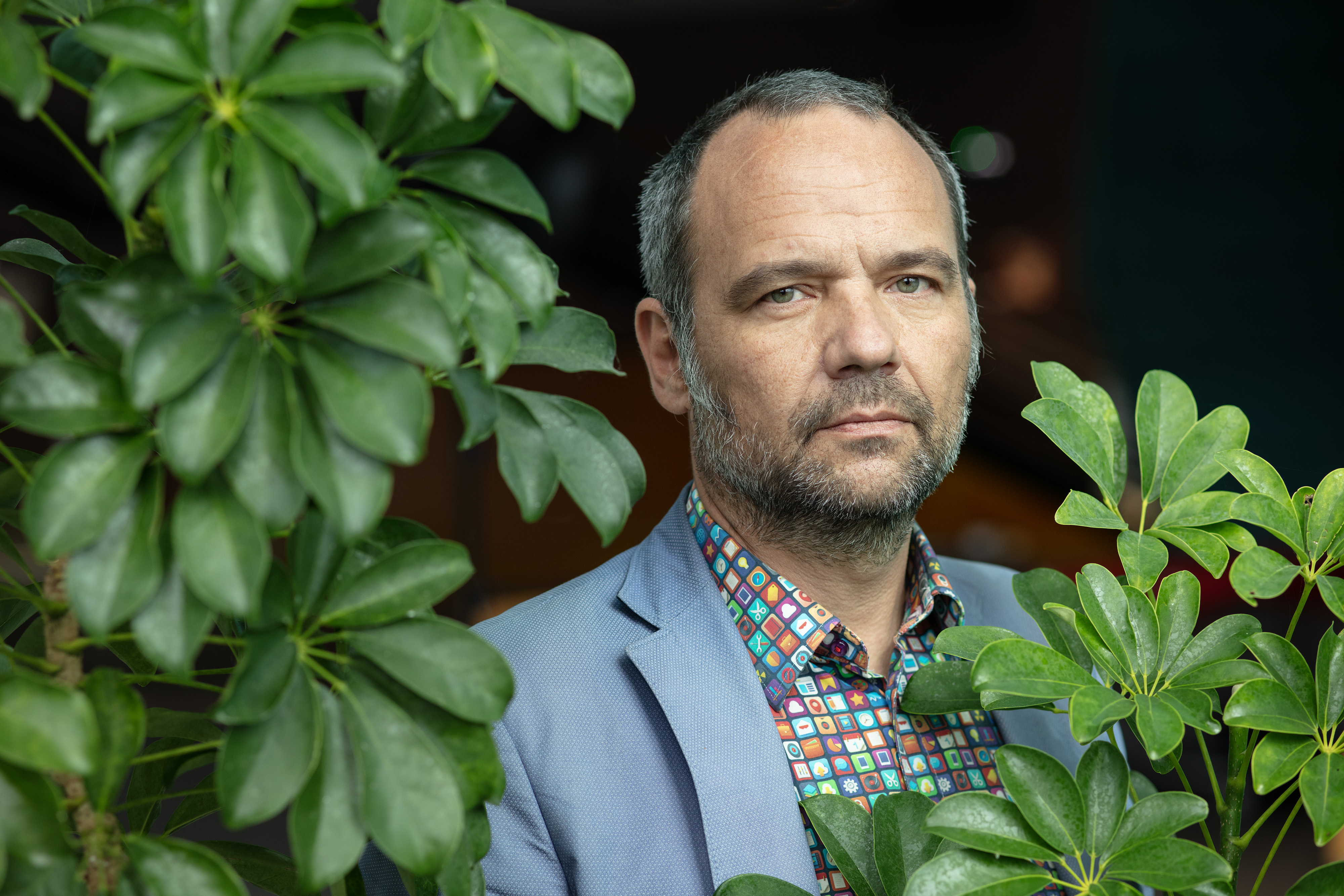
His negotiating skills go back even further – to his school days in a small village in the eastern Swiss canton of St Gallen. “I started primary school a year early, and I was smaller and weaker than many of my classmates,” says Schneider. Back then, he learnt to score points through persuasion.
This would later bring him great success in his professional life: he became ambassador and director of international affairs at the Swiss Federal Office of Communications (OFCOM) in 2017.
“We are a small country. To convince, we must have good arguments, better proposals than others and work hard. And then maybe they will follow us,” says Schneider, who has chaired various committees and expert groups at the Council of Europe since 2006 and has been chair of the AI Committee since 2022.
Was the AI Convention really a success?
In that role, Schneider was able to set a milestone with the first global convention on AI, which also prompted countries outside the EU to adopt new technologies in compliance with the European Convention on Human Rights (ECHR), the most important legal instrument established by the Council of Europe. The ECHR dates from 1950, a year after the Council’s foundation.
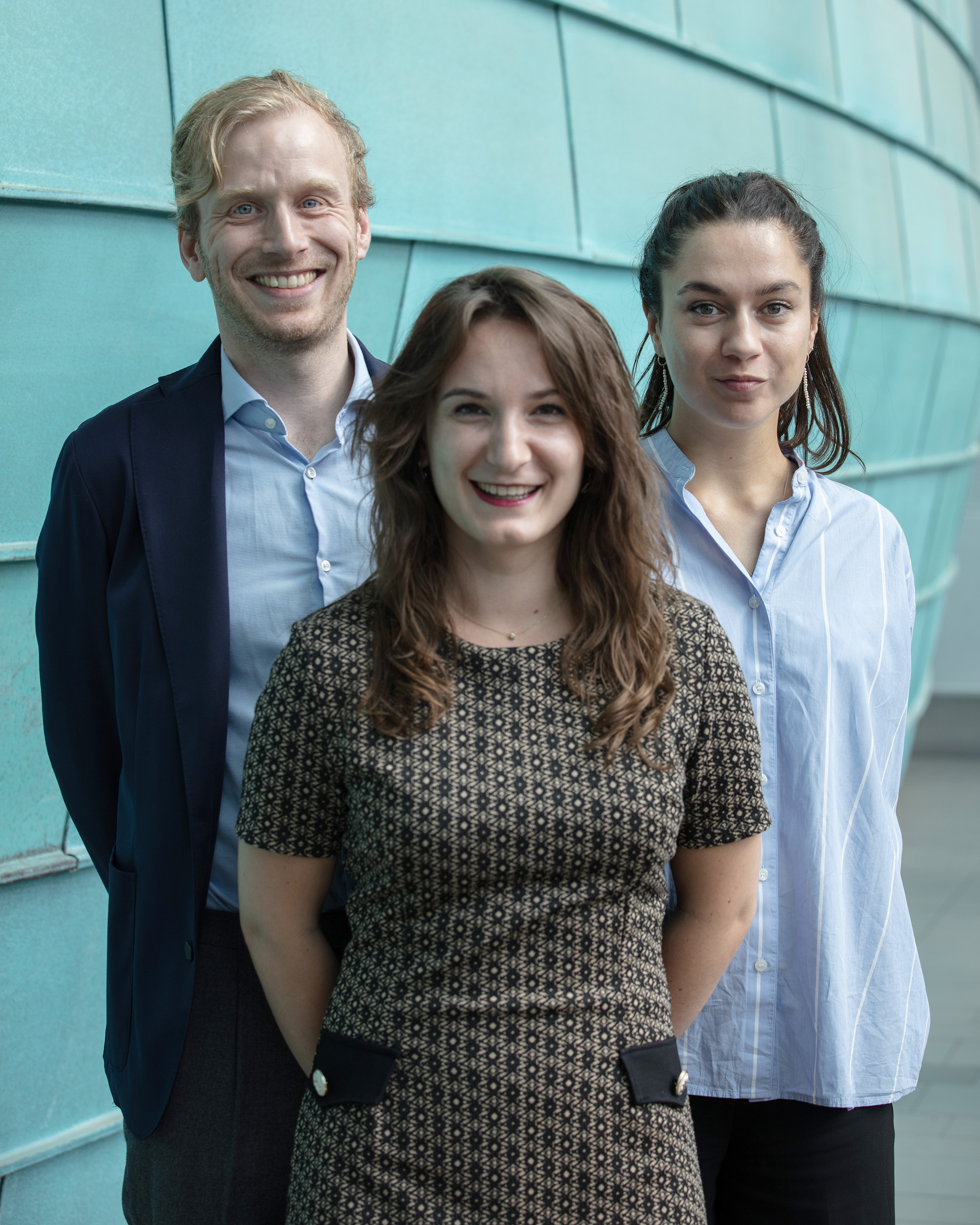
So far, nine countries – including the US – and the European Union have signedExternal link the AI Convention, but Switzerland and many others are yet to follow. For the treaty to become binding, states must ratify it at a national level. Each can do so in its own time, meaning the road to implementation is long.
Nevertheless, the AI Convention is being hailed as a success for the Council of Europe, and for Schneider’s track record. Several members of the AI committee give him credit for its passage.
“It was a great challenge to bring the jurisdictions of all the countries together. But now we have an international treaty,” says Floris Kreiken, a member of the Dutch delegation. “After several years of work, we are very proud of this convention,” echoes his colleague Monika Milanović. Even Schneider’s successor, the Spaniard Ramos Hernandez, who took over as chair of the committee in September, says it will be difficult to fill his predecessor’s shoes: “He has done an extraordinary job.”
The US State Department also praised Schneider, describing his work as “instrumental to the success of the convention” in an email. The only US delegate present at the committee meeting in Strasbourg said he was not allowed to give an interview on the subject.
Corporate responsibility ‘traded’ for US signature
But shadows linger over what has become known to some as the “Schneider Convention” as well as the Council of Europe.
“To get the US [and other countries] to agree to and sign the convention, a trade-off may have been made, allowing each country to exclude private companies from the treaty’s obligations,” says David Sommer, an expert at the Digital Society association, via email. He says that some civil society organisations felt that Schneider played a big part in steering the negotiations in this direction. Others suspect that his alleged courting of the US was dictated by higher-ups in the Council. “I don’t know how free Thomas was to act,” writes Sommer.
Fanucci, the legal advisor, shares this view but criticises Schneider for cutting corners, despite some grievances from civil society, in order not to delay the goal for too long. “We were a bit disturbed by the way the proverbial Swiss neutrality was lost in the sessions at times,” she says.
Together with the USExternal link, CanadaExternal link and the United Kingdom also advocated against legally-binding obligations in the AI Convention for private companies that develop and use AI for commercial purposes. Neither country’s representatives would comment when approached by SWI swissinfo.ch.
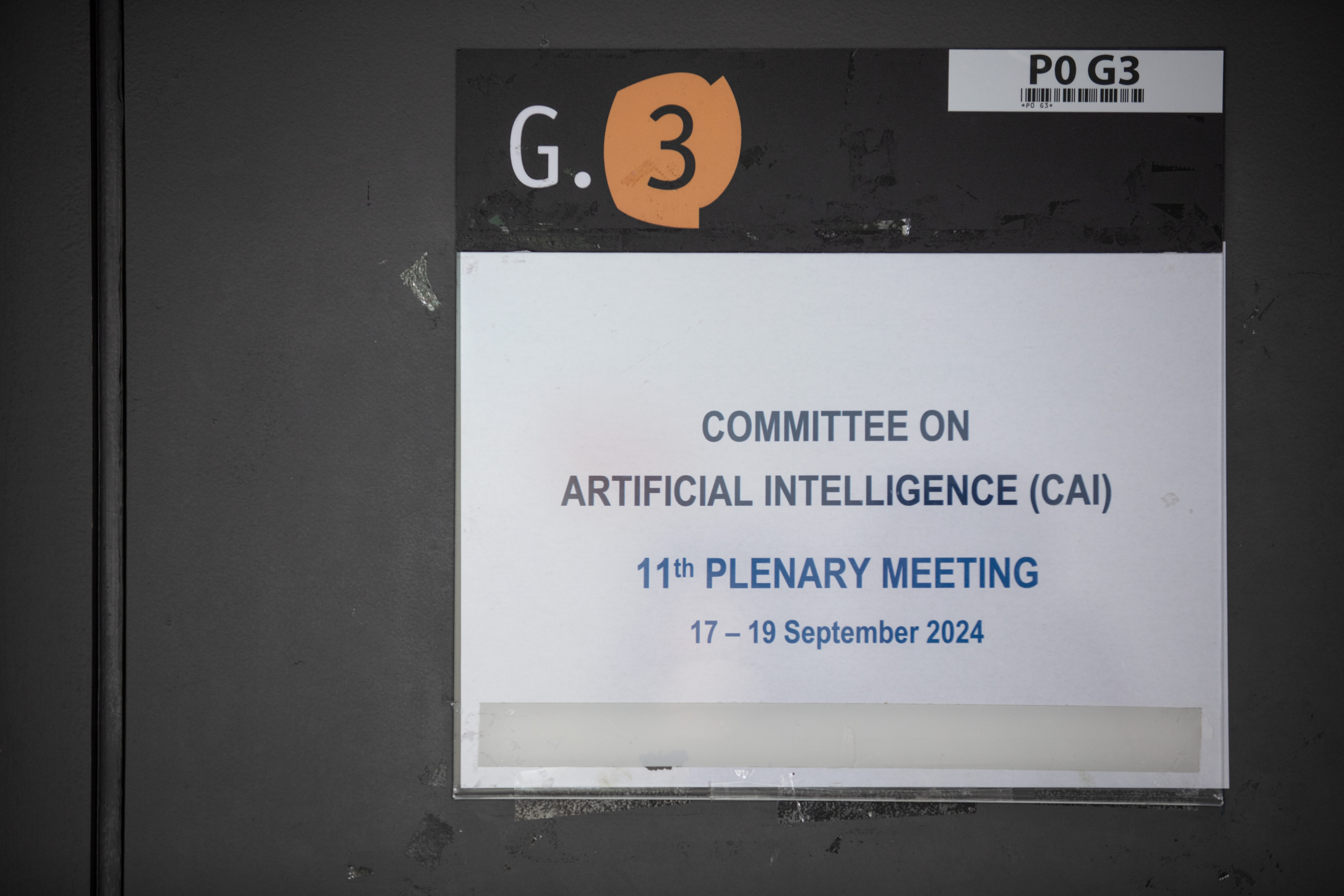
Getting the deal done
The Council of Europe dismisses the allegations as “unfounded speculation”. A spokesperson writes in an email that it is the member states within the committee that conclude the negotiations and determine the final outcome.
Schneider supports this stance and rejects the accusations against him. He says that the chair moderates the discussion and seeks common ground, but it’s the 46 member states that decide on the treaty’s content. “All 46 unanimously agreed that the treaty should have a global reach, and not be limited to Europe”, he says. He adds that he gave the floor to anyone who raised an issue.
Schneider finds the criticism of US influence odd, considering the undeniable power of the 27 EU countries, which make up more than half of the committee. “In total, the EU and other member states had more speaking time than the US and Canada,” Schneider says, adding that he did not lobby for a consensus, but simply tried to get all countries to agree on a draft by a set deadline of March 15.
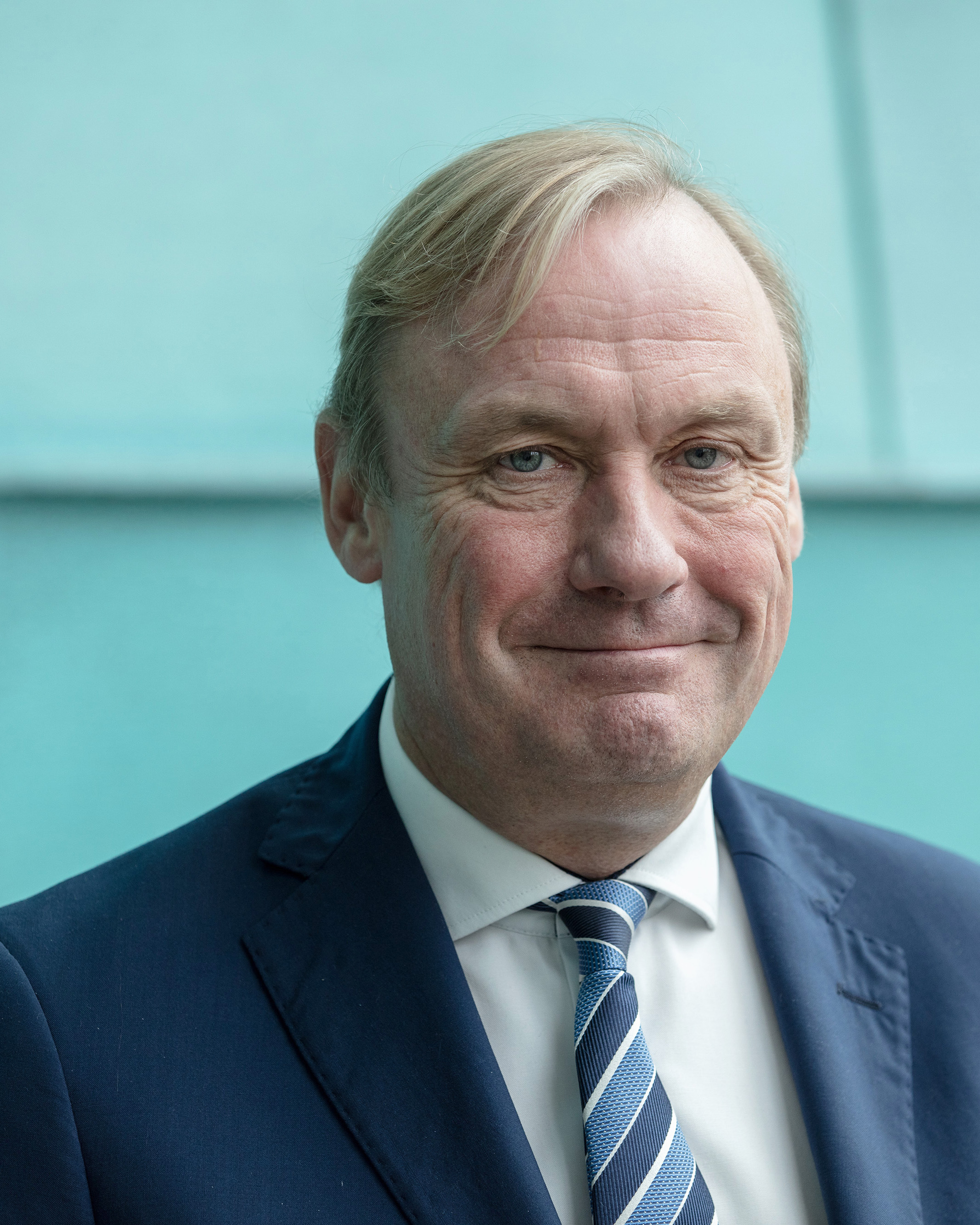
Kristian Bartholin, the secretary of the AI committee, also comes to Schneider’s defence, saying that he tried very hard to be a neutral facilitator and broker of a deal that included both European and non-European states. “If we want to protect our citizens, we need to make sure that basic standards are adhered to not just by European states but also by the main producers of AI technologies,” he says.
Nevertheless, the suspicion remains that the council wanted to have an agreement at all costs, so it could use it to prop up its legitimacy. For the past two decades, the EU has taken an increasingly central role in steering civil rights and security governance. And Russia’s presence in the Council of Europe until 2022External link has hurt the credibility of an institution that should be composed only of states that respect human rights and democratic values.
The lumpy sofas and sparse décor inside the council’s newest building in Strasbourg underpin a view held by several analysts: that the organisation has been “in decline for a long time, without power and without credibility”, as a University of Geneva professor wrote in the newspaper Le TempsExternal link. Others, however, believeExternal link that it is precisely the council’s “discretion” and “modesty” that allows it to advance on rights even in countries outside the EU.
Switzerland a fixed presence at Council of Europe
One thing is certain: Schneider’s career is not in decline but at its peak. He has concluded his last meeting as chair of the AI committee and is relieved to be handing over the reins, he says. But he is not out of the game: he will continue as committee vice-president, keeping one foot in Strasbourg.
And Switzerland, which is not a member of the EU, will remain well-represented in one of the main European institutions in which it can play a significant role. In September, former Swiss interior minister Alain Berset took up the post of secretary-general of the Council. Berset considers AIExternal link to be a “paradigm shift” and a “threat to democracy” and is in favour of regulation.
Schneider, for his part, believes that this technology will be key to addressing immense challenges, such as climate change and energy-resource management. But he is aware of the growing threats posed by algorithms to freedom of thought and democracy. He hopes the convention can help create a new legal order to mitigate AI’s potential harms and risks.
“Whether this will work, we will see in ten or 20 years”, he says.
Edited by Sabrina Weiss and Veronica De Vore. Translated from Italian using DeepL/si/gw

In compliance with the JTI standards
More: SWI swissinfo.ch certified by the Journalism Trust Initiative































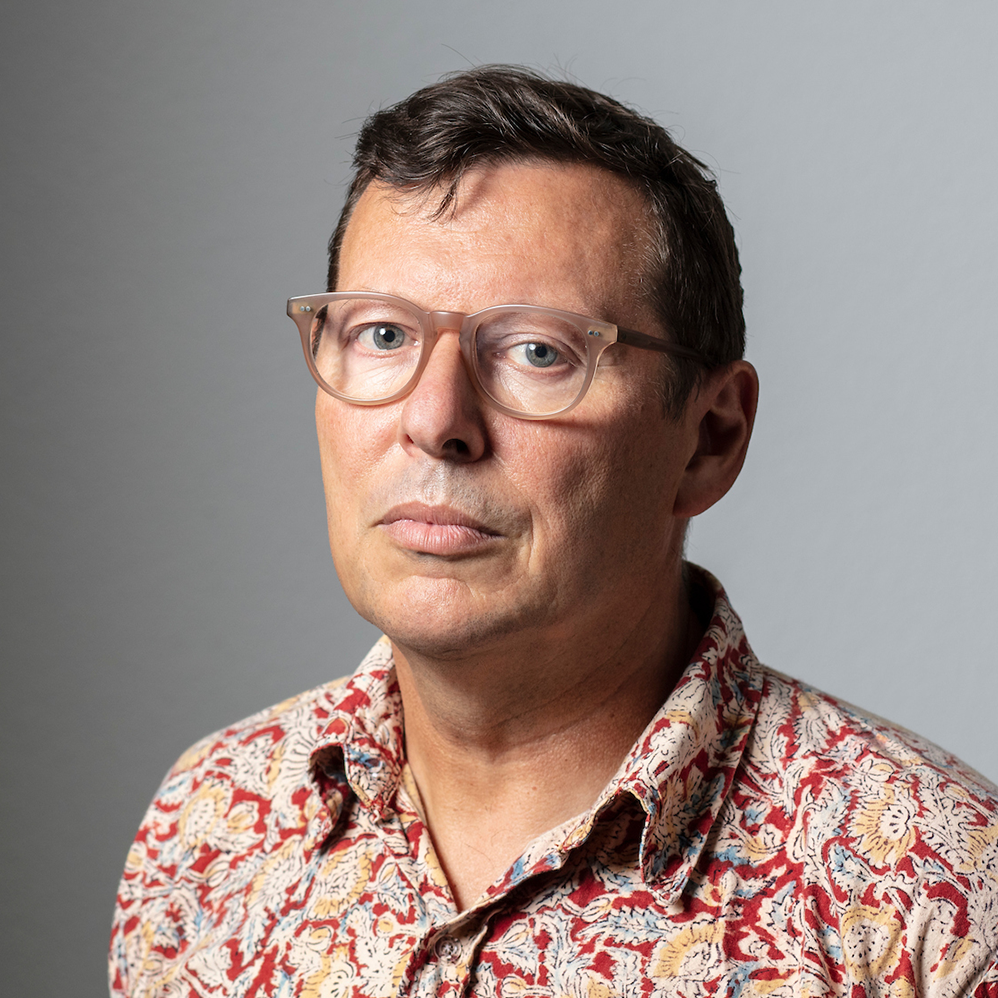


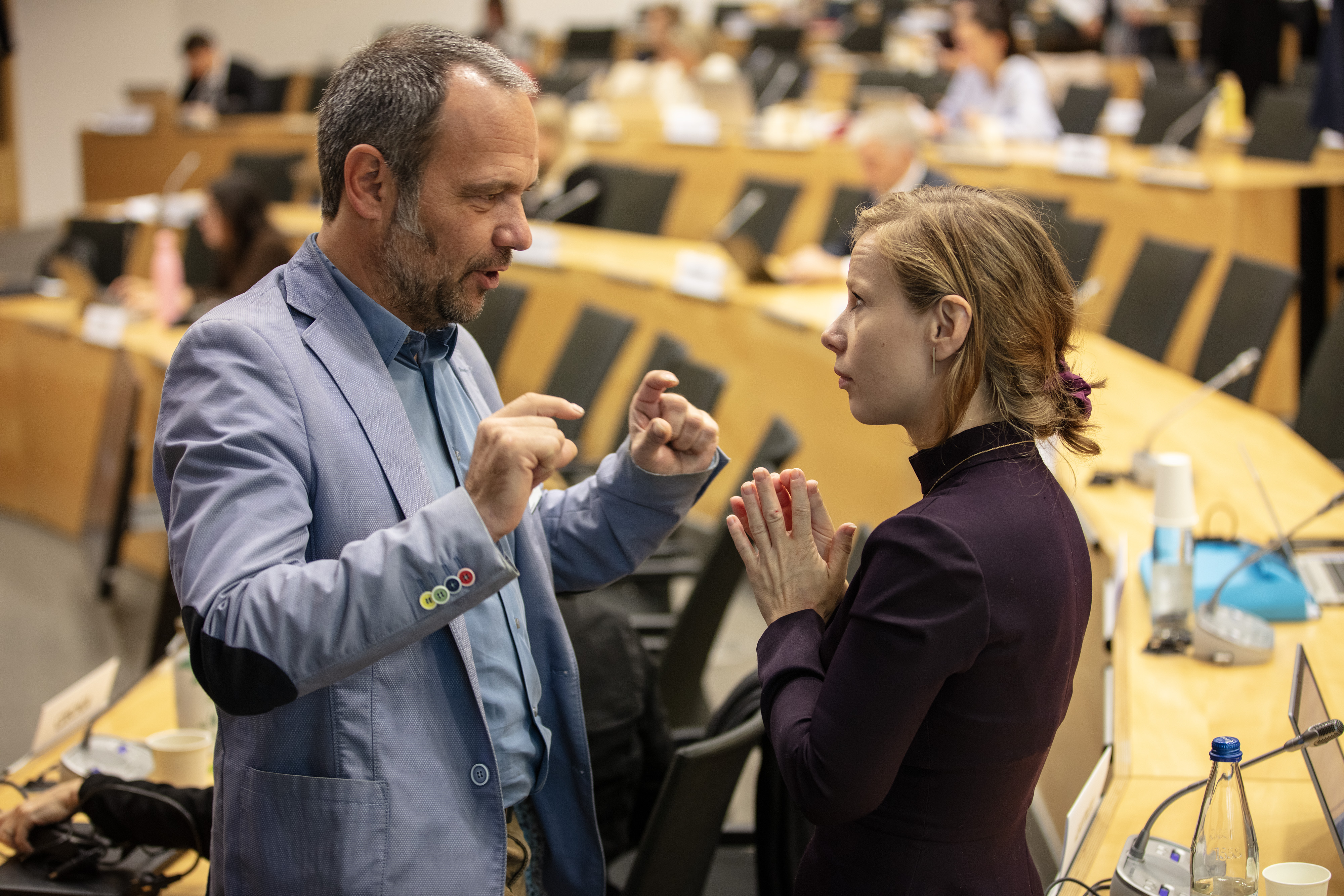
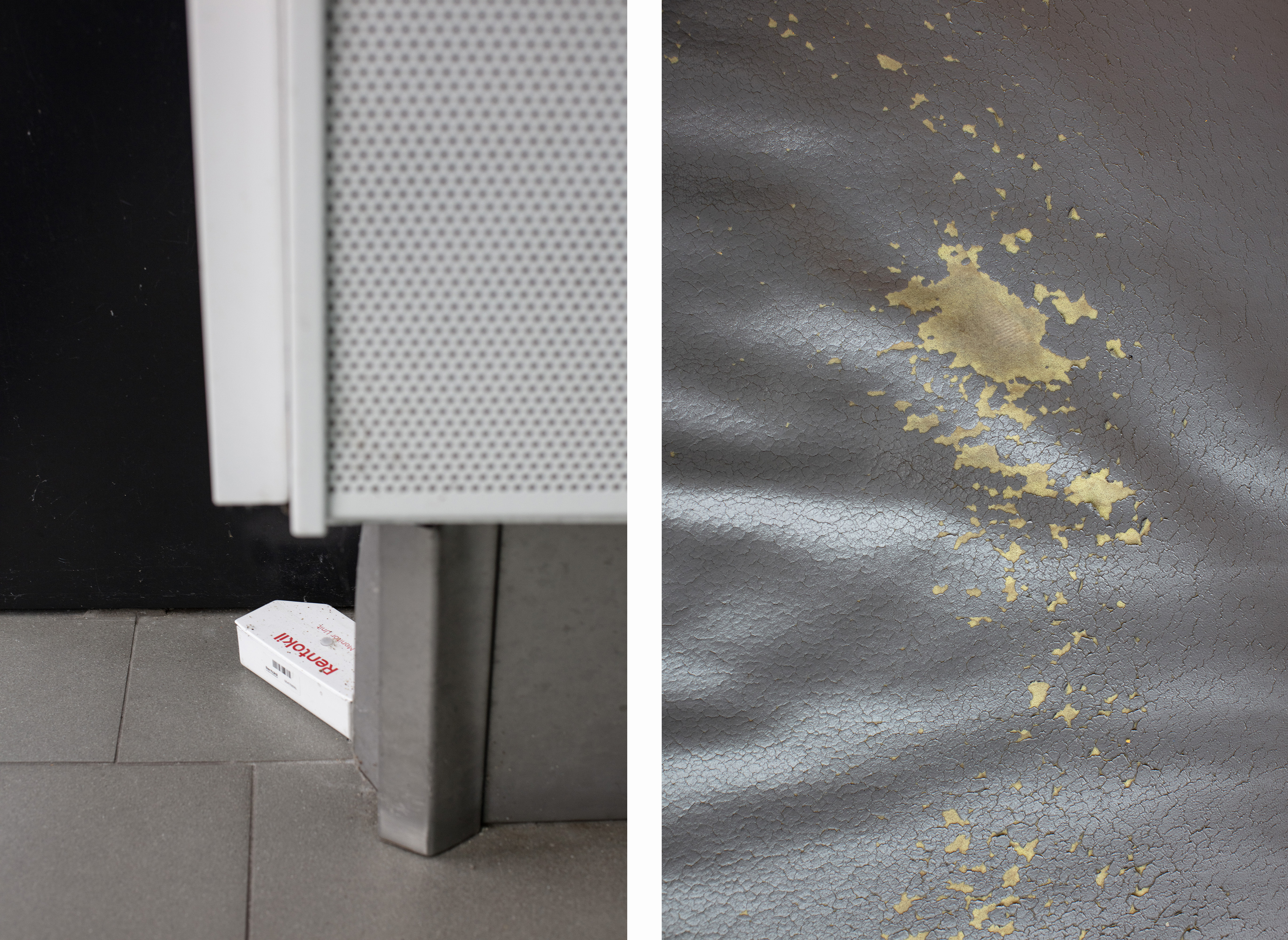



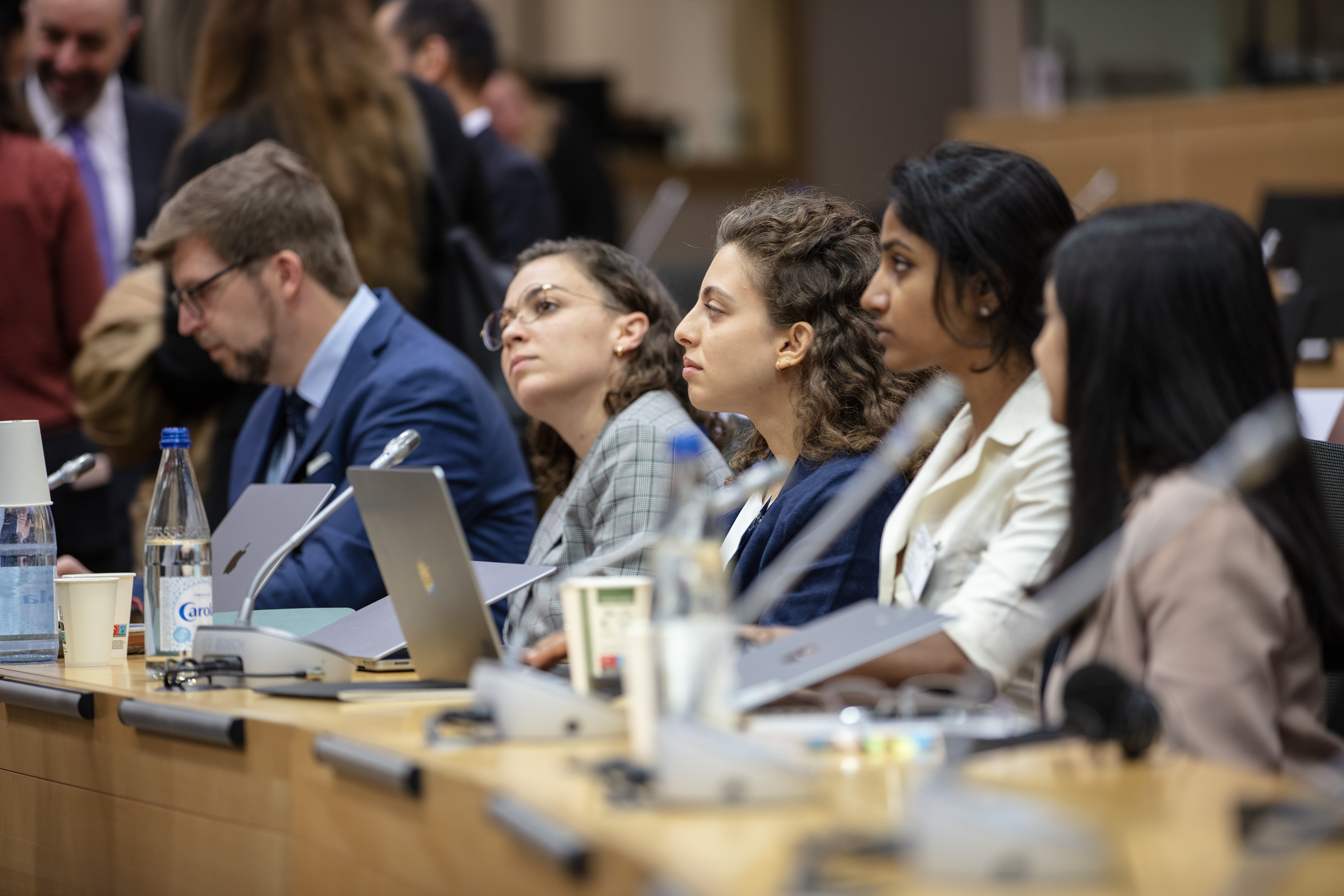


You can find an overview of ongoing debates with our journalists here . Please join us!
If you want to start a conversation about a topic raised in this article or want to report factual errors, email us at english@swissinfo.ch.